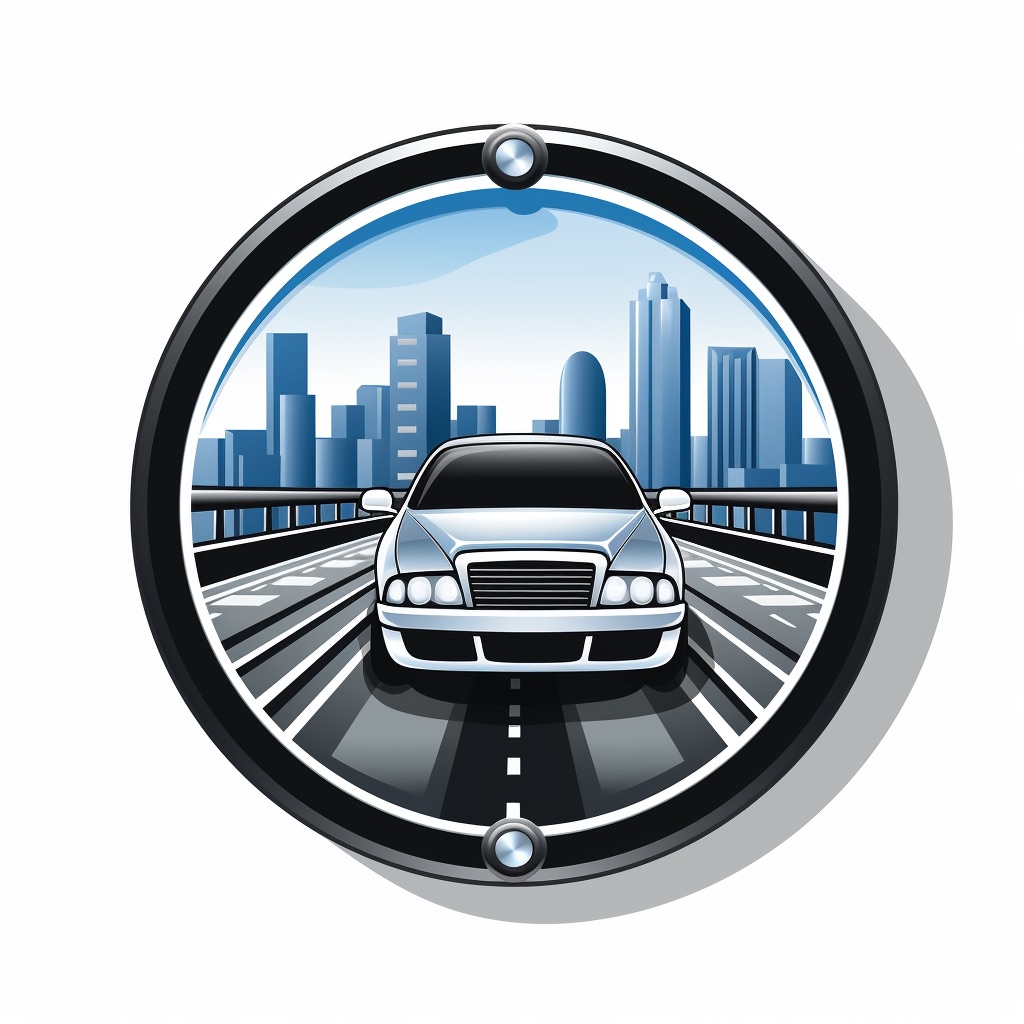Driving can be stressful, especially when dealing with heavy traffic or other unpredictable drivers. It’s not uncommon for drivers to become frustrated or angry on the road. However, when these emotions escalate to an intense and uncontrolled level, they could lead to instances of road rage. Road rage refers to aggressive or violent behavior exhibited by drivers on the road towards other drivers or pedestrians.
Definition of Road Rage
Road rage is a serious issue that poses a threat to the safety of all drivers and passengers on the road. It can manifest in different ways, from yelling and using obscene language towards other drivers to physically assaulting them. These behaviors are often triggered by minor incidents like being cut off in traffic or being stuck behind a slow-moving vehicle. It should be noted that while frustration and anger are normal emotional responses, allowing these feelings to take over while driving can have severe consequences. The NHTSA – National Highway Traffic Safety Administration defines road rage as:
“an assault with a motor vehicle or other dangerous weapon by the operator or passenger(s) of one motor vehicle on the operator or passenger(s) of another motor vehicle caused by an incident that occurred on the roadway”.
WA State Licensing (DOL) Official Site: Road rage – Washington.
Road Rage’s Effects on Drivers
The effects of road rage go beyond simply having an unpleasant experience behind the wheel. It can result in physical harm, legal repercussions, financial penalties, and emotional distress for both the offender and the victim. Additionally, it can negatively impact social relationships if left unchecked. Understanding how road rage affects drivers is crucial for promoting safe driving practices and reducing incidents of aggressive driving behavior on our roads. This knowledge empowers individuals with the tools they need to manage their emotions better while driving and avoid putting themselves and others at risk. Today we will explore some of the physical, emotional, and behavioral effects that arise from experiencing road rage. We will also examine some of the legal consequences that can result from aggressive driving behavior and how it can impact an individual’s personal life. We will discuss some practical prevention strategies that drivers can utilize to avoid road rage incidents altogether.
Physical Effects of Road Rage
Road rage is a common problem that many drivers face on a daily basis. The feeling of anger and frustration while driving can lead to physical, emotional, and behavioral consequences. The physical effects of road rage can be quite severe and can pose a significant risk to the driver’s health.
Increased Heart Rate and Blood Pressure
One of road rage’s most noticeable physical effects is an increase in heart rate and blood pressure. When a driver experiences road rage, their body goes into “fight or flight” mode. This response triggers the release of adrenaline, which causes the heart rate to increase, resulting in higher blood pressure. Elevating these levels for extended periods due to frequent episodes of road rage can put significant stress on the cardiovascular system, leading to hypertension and other related health issues.
Muscle Tension and Headaches
Another common physical effect caused by road rage is muscle tension leading to headaches. When drivers experience feelings of anger or frustration while driving, they tend to tense their muscles involuntarily. Over time this leads to chronic muscle tension that results in headaches or migraines. Painkillers may offer temporary relief but don’t address the root cause; therefore, finding ways to reduce stress levels is crucial.
Fatigue and Exhaustion
The constant mental strain that comes with experiencing road rage while driving can quickly become exhausting for drivers. The heightened level of stress hormones produced during these episodes makes it difficult for drivers to relax even when not behind the wheel anymore. This constant state of stress makes them feel tired all day with no energy left over for other things like family or hobbies they enjoy. Experiencing road rage has several physical consequences that affect overall well-being significantly. Drivers must identify triggers that lead them into such situations so they can avoid them. Additionally, practicing techniques like deep breathing exercises or meditation can help calm the mind and prevent physical effects from manifesting in the first place.

Emotional Effects of Road Rage
Anger, frustration, and irritability
One of the most prevalent emotional effects of road rage is anger. When drivers experience road rage, they often feel a sense of injustice or disrespect from other drivers. This can cause them to become angry, frustrated, and irritable. Anger can cause drivers to make rash decisions on the road, such as tailgating or cutting off other drivers. It can also lead to verbal altercations or physical confrontations with other drivers. The problem with anger is that it can be difficult to control when it arises suddenly. Drivers who are prone to road rage may find themselves struggling to manage their emotions while driving. They may feel a strong urge to retaliate against other drivers they perceive as inconsiderate or rude, which can put them at risk for accidents or confrontations.
Anxiety and stress
Another emotional effect of road rage is anxiety and stress. Drivers who experience road rage may feel anxious or stressed out after an incident on the road. They may worry about their safety or the safety of their passengers while driving. This anxiety can affect their ability to focus on the road ahead, making them more prone to making mistakes like missing turns or running red lights. Stress can also have physical effects on the body, leading to muscle tension and headaches. This can make driving even more uncomfortable for those already dealing with road rage’s negative effects.
Depression
The constant stress and negativity associated with aggressive driving behaviors can take a toll on mental health over time. Some individuals who experience frequent episodes of road rage may develop depression over time. Depression is often characterized by feelings of hopelessness, and sadness, accompanied by disinterest in activities that were once enjoyable. Those who struggle with depression due to frequent road rage may find themselves struggling to enjoy things they once loved, such as driving or spending time with loved ones. They may also experience physical symptoms like fatigue or difficulty sleeping.
Behavioral Effects of Road Rage
Road rage can lead to a variety of dangerous driving behaviors that put both the driver and others on the road at risk. Anger, frustration, and a lack of impulse control often fuel these behaviors. Let’s take a closer look at some of the most common aggressive driving behaviors associated with road rage.
Aggressive Driving Behaviors
Tailgating is one of the most common aggressive driving behaviors associated with road rage. When drivers tailgate, they follow too closely behind the car in front of them, putting themselves and others at risk for rear-end collisions. Honking excessively, swerving in and out of lanes, and speeding are also common aggressive driving behaviors seen among drivers experiencing road rage.
Verbal or Physical Altercations
Road rage can also lead to verbal or physical altercations between drivers. Verbal altercations may include yelling or cursing at other drivers, while physical altercations involve actions such as throwing objects or physically assaulting other drivers. These types of altercations not only put individuals in danger but may also result in legal consequences for those involved.
Risky Driving Decisions
Drivers experiencing road rage may also make risky decisions such as running red lights or stop signs. This type of behavior not only puts the driver’s life at risk but may also cause serious injury to other individuals on the road. Risky driving decisions could result in fines or even jail time if an accident occurs due to this behavior. Behavioral effects from road rage can be very dangerous for everyone involved on the roads. Drivers should practice safe driving habits and learn how to manage their emotions while operating their vehicles to reduce the likelihood of experiencing these types of dangerous behavioral effects from road rage.
Legal Consequences of Road Rage
Road rage can lead to serious legal consequences for drivers who engage in aggressive behavior behind the wheel. In many cases, these consequences can have a lasting impact on a driver’s life, including fines, criminal charges, and even loss of driving privileges.
Traffic tickets and fines for aggressive driving behaviors
One of the most common legal consequences of road rage is receiving traffic tickets and fines for aggressive driving behaviors. Drivers who tailgate, weave in and out of traffic, or engage in other dangerous actions on the road are at risk of being pulled over by law enforcement officers and cited for their behavior. Some states have specific laws that apply to aggressive driving behaviors such as speeding or tailgating. For example, Arizona has a law that makes it illegal to drive in an “aggressive or reckless manner,” which includes behaviors such as weaving between lanes or failing to use turn signals. Drivers who violate these laws may be subject to higher fines than they would receive for typical traffic violations.
Criminal charges for assault or reckless endangerment
In some cases, road rage incidents can escalate into criminal offenses such as assault or reckless endangerment. When drivers become angry or frustrated behind the wheel, they may act out aggressively towards other drivers or pedestrians. These actions can result in criminal charges if they cause harm to others. For example, if a driver gets into a physical altercation with another driver after a road rage incident, they could be charged with assault. Similarly, if someone is injured as a result of dangerous driving behavior during a road rage incident (such as running someone off the road), the driver responsible could face charges of reckless endangerment.
Loss of driver’s license or increased insurance rates
Perhaps the most severe consequence of road rage is losing one’s driver’s license as a result of repeated or egregious violations. Drivers who accumulate too many penalty points on their personal license may have their driving privileges suspended or revoked, which can significantly impact their daily life. In addition to losing one’s license, road rage can also lead to increased insurance rates. Insurance companies view aggressive driving behaviors as a sign that the driver is at a higher risk of getting into an accident or causing damage to their vehicle. As a result, drivers who engage in road rage may see their insurance premiums increase significantly, making driving more costly in the future. Overall, it’s clear that road rage is not just a minor annoyance – it can have serious legal and financial consequences for drivers who engage in this behavior. By understanding these consequences and taking steps to prevent road rage incidents from occurring, drivers can protect themselves and others while on the road.
Impact on Personal Life
Relationship problems with family members or friends due to constant anger issues
Road rage doesn’t just affect the driver, but also their loved ones. The constant anger and frustration can cause a driver to lash out at their family members or friends, leading to strained relationships. The driver may become short-tempered and easily irritated, leading to arguments and fights. Moreover, road rage can result in a permanent change in behavior. A person who was once calm and collected could become hot-headed and unable to control their emotions due to the continued exposure of road rage incidents. This change in behavior can lead to significant damage not only for them but also for those around them. These relationship problems can cause irreparable damage if left unchecked, leading to social isolation and loneliness.
Deterioration in mental health due to constant stress from road rage
Road rage is a significant source of stress for drivers that constantly face it on the roadways. It causes anxiety, frustration, irritability, depression which results in deteriorating mental health over time. The psychological impact of road rage can be severe enough to cause insomnia or sleep deprivation resulting from anxiety. Road ragers find themselves regularly fearful while driving; they take unnecessary risks while driving trying hard not to get into situations where they have experienced aggression before. In extreme cases where drivers have experienced traumatic incidents or were victims of accidents because of aggressive driving behaviors, post-traumatic stress disorder (PTSD) may develop. Frequent exposure of such events leads many drivers towards depression or other mood disorders whose treatment would require professional help. If you suffer from constant stress as a result of experiencing excessive road rage you must seek professional help immediately.
Prevention Strategies for Road Rage
Avoiding Triggers that Cause Road Rage
There are several triggers that cause road rage. These triggers may include traffic congestion, reckless drivers, and driving under the influence. To avoid these triggers, you can try to plan ahead by leaving earlier than usual or finding alternative routes to your destination. Additionally, avoid tailgating or engaging in reckless driving behaviors yourself as it may encourage others to respond aggressively. If you find yourself getting frustrated at a particular driver or situation on the road, try performing a few deep breaths and counting to ten before reacting.
Practicing Relaxation Techniques like Deep Breathing Exercises
Deep breathing exercises may help reduce stress and anger levels while driving. When you feel yourself getting upset on the road, take a few deep breaths and focus on breathing slowly and deeply through your nose. Exhale slowly through your mouth until you feel more relaxed. Another relaxation technique is meditation, which can help calm your mind and body during stressful situations like heavy traffic or aggressive driving. There are several apps available that offer guided meditations specifically designed for use while driving.
The Importance of Self-Care
Taking care of yourself is crucial in preventing road rage from occurring. Make sure you are well-rested before getting behind the wheel; fatigue can increase frustration levels on the road. You should also stay hydrated and make time for regular exercise to help reduce stress levels overall. Consider listening to calming music or audiobooks while driving as they can distract from stressful situations on the road. Preventing road rage starts with recognizing what causes it in the first place: heavy traffic congestion, reckless drivers, and driving under the influence are all common triggers of aggressive behavior behind the wheel. By planning ahead and avoiding these triggers as much as possible, practicing relaxation techniques like deep breathing exercises, and taking care of yourself overall, you can reduce your chances of experiencing road rage while driving. Remember to prioritize safety and stay calm behind the wheel.

